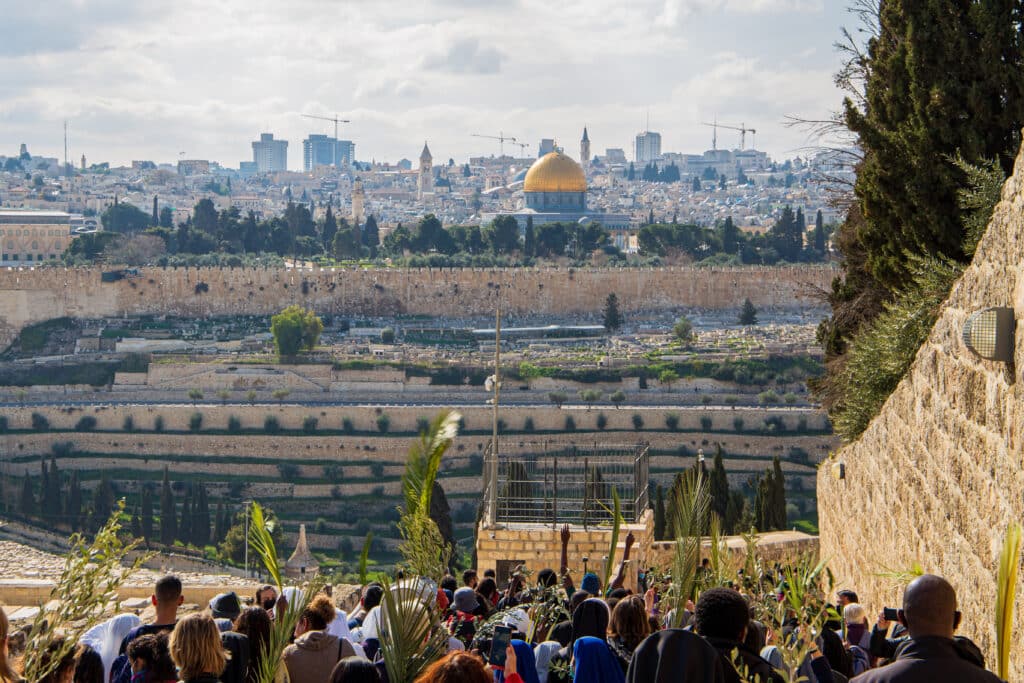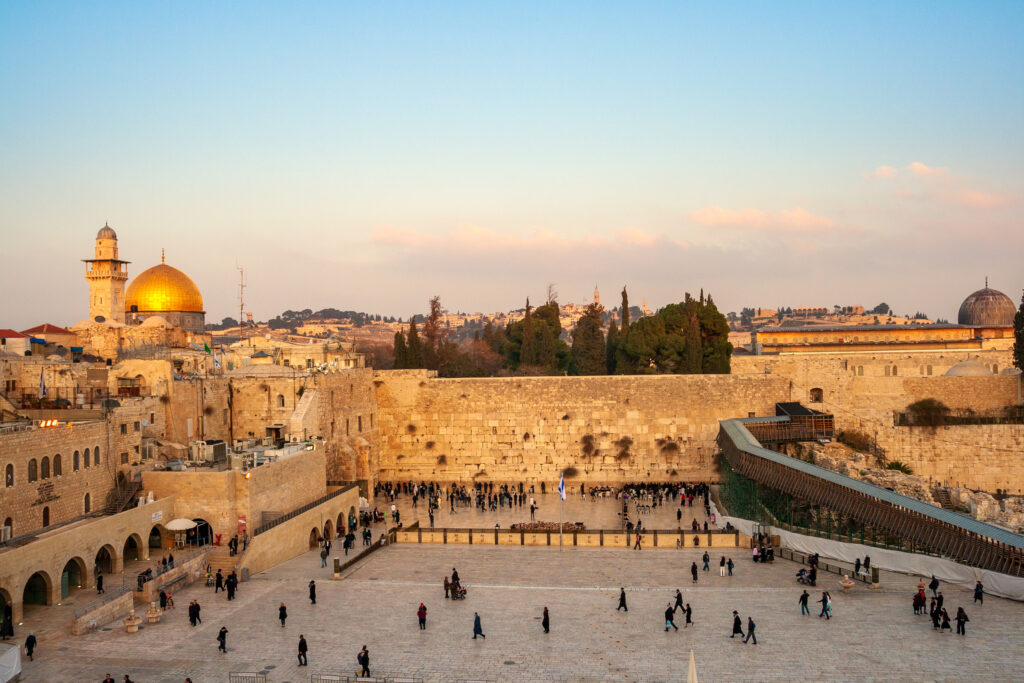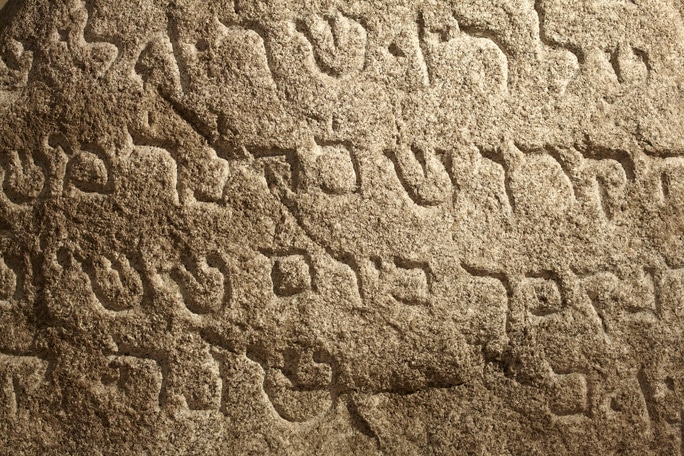Have you ever thought that Hebrew words could enhance how you pray?
“Rejoice always, pray continually, give thanks in all circumstances;
for this is God’s will for you in Christ Jesus.”
1 Thessalonians 5:16-18
Prayer is a vital part of our relationship with God, and it is something that God calls us to do continually. So, let’s take a look at some Hebrew words that are helpful to use in prayer. And you may even be surprised about how many Hebrew words you already use in your prayers to God!
Hebrew Words You Likely Already Use when You Pray
We all have used the Hebrew word Amen to close our prayers or to shout out in agreement when someone is speaking the truth. Amen means “so be it” or “may it be so”, and shares the root with eman, meaning to confirm.
So, when we end our prayers with amen, we are saying, “God, I believe with faith that what I just prayed will come to be and may your will be done.” (Check out another article all about amen and faith on our website)
And I bet you’ve also used another Hebrew word in your prayers: Hallelujah! Prayer is not only a time to request things from God, but it is also – or maybe most of all – a time to worship Him for who He is.
Hallelujah is actually two Hebrew words, combined. Hallelu means praise, and Yah stands for Yahweh, which is the name of God. So, the next time you are in prayer, make sure you shout out a loud “Hallelujah!” to the Lord your God. Give Him the praise He deserves! (And you can discover more Hebrew words for praise and worship here)
“The twenty-four elders and the four living creatures fell down and worshiped God,
who was seated on the throne. And they cried: ‘Amen, Hallelujah!’”
(Revelation 19:4)
What Other Hebrew Words Can You Use When You Pray?
Let’s take a look at seven Hebrew phrases you can add to your prayer life. Maybe some of them you have never heard of before. Or, you may be surprised at how many Hebrew words you already know and use in your prayers.
Either way, our hope is that you are inspired to deepen your conversations and prayers with the King above all kings. Now, let’s start with a Jewish classic – here’s a phrase used to begin many Jewish prayers:

Baruch Ata Adonai
These words start the majority of Hebrew prayers, because they mean: “Blessed are you, Lord our God.” Indeed, a great way to start a prayer is to exalt and bless the Lord above all else.
Another related phrase, “baruch haba”, means “blessed is the one who comes”. This is a phrase that Israelis use to this day to welcome someone into their home. It is a very popular phrase, but you may remember that Jesus also mentioned it. In what context?
“You shall see Me no more till you say, ‘Blessed is He who comes in the name of the Lord!’ ” (Matthew 23:39)
Now you can use these phrases to begin your prayers by blessing the Lord and welcoming Him into your heart, your home, your community, and your nation!
“Bless the Lord, O my soul, and all that is within me, bless his holy name!” (Psalm 103:1)
Common Hebrew Word Used in Prayer: Hosanna
“Hosanna in the highest” are words you may have sung or read in the gospels. But, if you are like me, for the longest time I didn’t really know what that word meant.
Many have thought that this word means to praise God, but it actually has a much deeper meaning behind it. Hosanna is a Greek transliteration of two Hebrew words: Hoshi’a-nah.
Hoshi’ah means “save now” and anah means “to answer” or “to respond”. Therefore, when we say the word Hosanna, we are asking God to save us and respond to our cry.
When Jesus was entering the city of Jerusalem and the crowds laid their coats and branches on the ground, they welcomed Jesus by saying:
“’Hosanna to the Son of David!’ ‘Blessed is he who comes in the name of the Lord!’ ‘Hosanna in the highest heaven!’” (Matthew 21:9)
When the people saw Jesus, they welcomed Him with the words Hosanna and Baruch haba beshem Adonai (Blessed is he who comes in the name of the Lord). Therefore, the crowd was acknowledging and welcoming Jesus as their Savior!
They were boldly declaring at the gates of Jerusalem that Jesus was their Messiah and the One who had come to save them now.
So, the next time you pray, sing, or read the word Hosanna, remember that you are declaring that Jesus saves, and He is the One who responds to your prayers. Jesus is the one who was, who is, and who is to come!
Avinu she’baShamayim
But since we’re talking about praying, let’s turn our attention to one significant prayer in the Bible. If we want to learn more about prayer, we need to first look at how Jesus prayed. And He gave us a great example in Matthew 6 on how to pray to God:
“This, then, is how you should pray: “ ‘Our Father in heaven, hallowed be your name…’” (Matthew 6:9)
Jesus starts the prayer out with Avinu she’baShamayim – He is addressing God as Our Father in Heaven. Now, let me break down these Hebrew words for you. “Avinu” comes from the word “Abba”, which means Father. You can find this word also in the Book of Romans:
“The Spirit you received does not make you slaves, so that you live in fear again; rather, the Spirit you received brought about your adoption to sonship. And by him we cry, ‘Abba, Father.’” – Romans 8:15
The form Avinu is specifically “our Father.” Then, the word sheh means “that”, bah means “in”, and “Shamayim” is Heaven. So, when you put it all together Avinu she’baShamayim means, “Our Father that is in Heaven.”
This is a powerful phrase to pray, because we are reminded that God is both our Father and He is seated in the heavens! We are His children whom He loves and adores. Our Abba, Father sits on the throne in Heaven and as His children, we get the honor of praying to Him!
Kadosh – the Hebrew Word You Need When You Pray
The throne room of God is a place of holiness or kadosh. The Hebrew word kadosh means holy, sacred, and set apart. It is mentioned several times in the Bible, both in the Old Testament and New Testament, specifically referring to the throne room of God.
As we look at the Word of God, we can see that the throne room is described as the most holy place, or the Holy of holies. And in Hebrew it is called “kadosh hakodshim”. This description of the throne room of God points to the fact that we serve a God who is the most sacred and set apart one; and yet He invites us into that most holy place with Him by the blood of His Son Jesus Christ.
We can also read two descriptions of the Throne Room in the Bible, where the seraphim who surround God sing to Him “Holy!” uninterruptedly. Isaiah saw it with his own eyes:
And one called to another and said: “Holy, holy, holy is the Lord of hosts; the whole earth is full of his glory!” (Isaiah 6:3)
This image is much later confirmed by the Apostle John, who also received a remarkable vision from the Lord and described the seraphim in the Throne Room:
And the four living creatures, each of them with six wings, are full of eyes all around and within, and day and night they never cease to say, “Holy, holy, holy, is the Lord God Almighty, who was and is and is to come!” (Revelation 4:8)
As we come to the Lord in prayer, let us remember His holiness and the sacrifice Jesus made in order for us to enter the Most Holy Place. We were allowed to approach our Heavenly Father who sits on the throne of grace. Let us proclaim: “Holy! Holy! Holy is the Lord God Almighty!”
Praying for Chesed
“Amazing grace how sweet the sound that saved a wretch like me!”
Many of us are very familiar with this song about God’s amazing grace. But what really is grace? The Hebrew word for grace is chesed which can also mean lovingkindness, charity, and compassion.
Chesed is not only a great word to sing in a song, but it is also a powerful Hebrew word to use when you pray. Grace helps us see how sinful we are, and how loving, kind, and compassionate God is. We are saved by God’s chesed, and we serve a God who sits on the throne of grace!
“For it is by grace you have been saved, through faith—and this is not from yourselves, it is the gift of God— 9 not by works, so that no one can boast.” – Ephesians 2:8-9
“Let us then approach God’s throne of grace with confidence, so that we may receive mercy and find grace to help us in our time of need.” (Hebrews 4:16)
**If you want to listen to a hebrew song about Chesed, check it out here.
Sh’ma Israel!
An important aspect of prayer is to realize that its not all about us. Jesus called us His friends, and He wants to talk to us – so prayer is also about listening to what God is saying to us. And He wants us to be aware of His plans and what’s in His heart.
Sh’ma means to listen. But if you’ve heard this word before, you probably heard it paired with Israel: Sh’ma Yisra’el! Listen, hear, O Israel! So why would we suggest this phrase on a list of Hebrew words to pray with?
There is a very good reason for that. In His Word, through His kings and prophets, the Lord is urging us to pray for Israel. And what better way to pray for His people than with the words of the Bible.
One of the most common prayers for the Jewish people is called Sh’ma Israel which is a declaration of God’s word from Deuteronomy 6:4-5:
“Hear, O Israel: The Lord our God, the Lord is one. Love the Lord your God with all your heart and with all your soul and with all your strength.”
This is by far the best prayer to pray over the people Israel: Listen! Recognize your God and love your God!
Hebrew Word to Know when You Pray: Selah
Finally, the last word I want to leave with you is not exactly a word to pray with, but a word to include in your prayer time in a practical sense.
The meaning of selah is not fully understood, but one proposed interpretation of this Hebrew word is to “stop and listen”. Selah is used 74 times in the Bible, mostly in the book of Psalms. Therefore, another meaning could be that it is a musical pause or a moment of silence.
So, as you dedicate time to pray, maybe even use some Hebrew words while you’re at it, take also a moment of silence. Stop and listen to the Lord.
When we hear God’s voice and direction, we actually get greater insight on how to pray or what to do.
I hope you enjoy this time of listening and praying to the King above all kings, and maybe you can try incorporating a few of these Hebrew words into your prayers.
“Who is this King of glory? The Lord of hosts, he is the King of glory! Selah.” – Psalm 24:10

7 Hebrew Words Every Christian Should Know: Free PDF Download
With the use of the Hebrew language God revealed Himself to mankind. This ancient tongue held the greatest spiritual truths that guided our lives through the ages. And in each generation, they are discovered anew.
We know the Bible can be hard to understand and you want to get more out of it. Which is why we want to teach you seven Hebrew words that will transform the way you read the Bible.
Articles Related to Hebrew Words to Know When You Pray
Estimated reading time: 10 minutes

